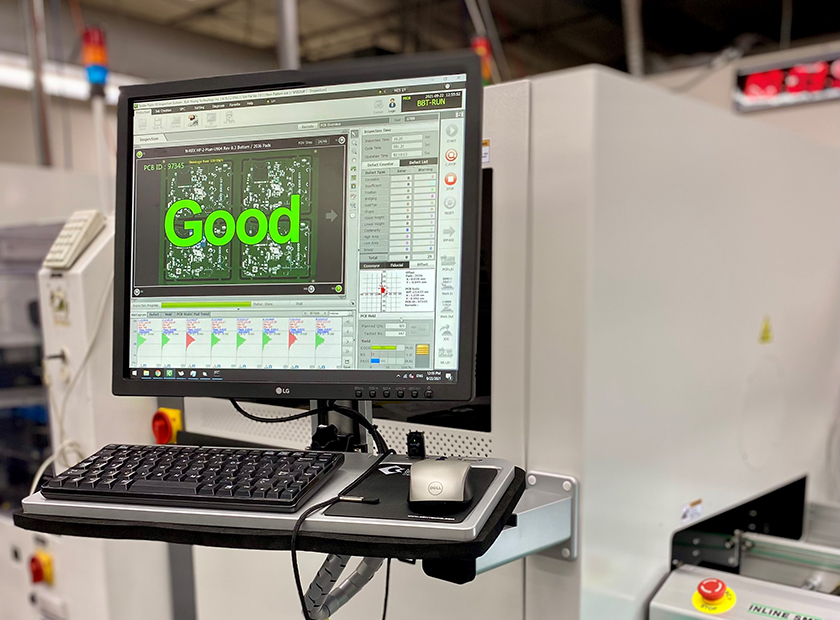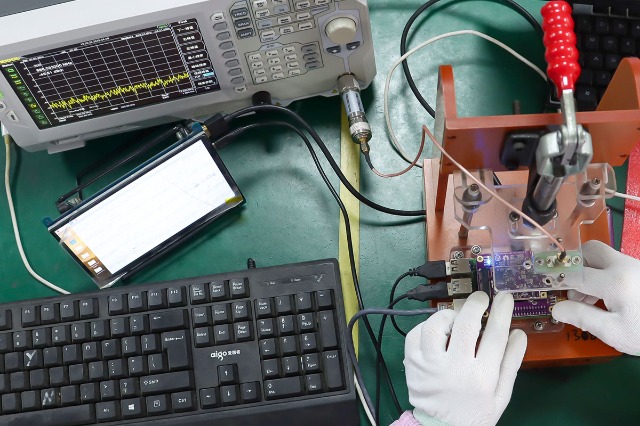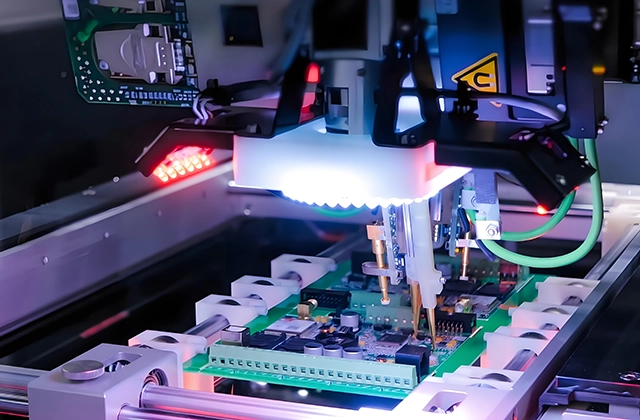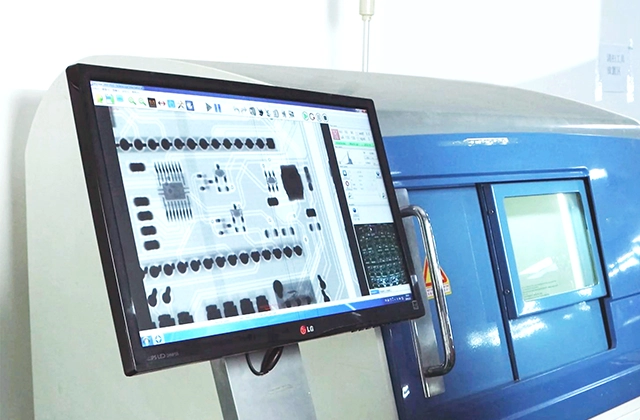Elecrow's Precision Testing and Quality Assurance System for LoRa Modules

LoRa modules are the core communication components in IoT applications. Their performance directly dictates the data transmission range, power consumption, and overall reliability of the end device. The manufacturing of LoRa modules, particularly their Radio Frequency (RF) circuitry, demands exceptional precision and process consistency. Even minor deviations in components, soldering, or assembly can lead to substandard performance, compromising the successful deployment of a project.
Consequently, ensuring that every LoRa module precisely meets its design specifications throughout the mass production process presents a universal challenge.
At Elecrow, we address this challenge with a rigorous and comprehensive Quality Assurance (QA) system specifically designed for high-precision RF devices. We are committed to delivering products that are not only manufactured but are systematically verified for reliable performance.
Quality Control Process for a High-Precision LoRa Module
A comprehensive test plan is the most critical quality control stage in our hardware manufacturing services. The following outlines our standard QC process for a high-precision LoRa wireless communication module:
1. Production Preparation & DFM Analysis: The process begins with a detailed Design for Manufacturability (DFM) analysis conducted by our engineers, who then confirm the complete testing protocol. To enhance production efficiency and product consistency, we utilize panelization by default (unless otherwise specified by the client), ensuring that every unit on a panel undergoes identical process parameters
2. In-Depth Core Functionality Testing: This stage is crucial for validating the module's core performance. A dedicated test firmware is flashed onto the board, which is then secured in a custom-designed test jig. A series of precision instruments are then employed for measurement:
*A signal generator is used to produce standard test signals to evaluate the module's communication response.
*A multimeter monitors critical voltage and current levels to ensure the module's electrical characteristics and power consumption align with design specifications.
*A spectrum analyzer conducts a precise evaluation of RF performance, including key metrics such as Transmit Power (Tx Power), Receiver Sensitivity (Rx Sensitivity), Signal-to-Noise Ratio (SNR), and spurious emissions, to guarantee high-standard communication quality, even in complex wireless environments.
3. Comprehensive Full-Unit Testing: Boards that pass the core functionality tests are assembled into their enclosures. Engineers then flash a full-unit test firmware and conduct integrated tests, such as long-duration burn-in tests, to simulate real-world application scenarios. This validates the synergistic operation and long-term stability of all hardware and software components.
4. Final Firmware Flashing & Delivery: Upon successful completion of all testing procedures, the final, validated version of the firmware is flashed as required by the client. This step ensures that the product is ready for immediate integration or use upon receipt.

Testing before shipping Lora
Multi-Layered Automated Inspection for Process Quality
To support these stringent testing standards, our production line is equipped with a multi-layered automated inspection process to monitor and guarantee in-process quality.
- 3D-SPI (3D Solder Paste Inspection): Prior to component placement, SPI systems accurately scan the topography of solder paste deposited on the PCB pads, analyzing its volume, area, and height. This step effectively prevents soldering defects caused by paste inconsistencies (e.g., insufficient, excessive, or bridging), controlling potential reliability risks at their source.
- AOI (Automated Optical Inspection): After reflow soldering, AOI systems use high-resolution cameras to capture images of the board and compare them against a reference standard. This allows for the rapid identification of component placement defects such as misplacement, missing components, or polarity reversal, offering a level of speed and consistency unattainable by manual inspection.

Flying Probe Testing
- X-Ray Non-Destructive Inspection: For components with bottom-terminated packages like BGA and QFN, solder joints are hidden from optical view. We utilize industrial-grade X-ray equipment to perform non-destructive inspection of these hidden joints to identify internal defects like voids and bridging (shorts). For LoRa modules that rely on the integrity of such packages, X-ray inspection is a critical step to ensure reliability.

X-Ray Inspection
- ICT (In-Circuit Testing): ICT is employed to verify the electrical connectivity of the circuit network and the parameters of its components. Using a test fixture with probes that contact test points on the board, ICT checks for open circuits, short circuits, and verifies that component values are within tolerance. It effectively validates the fundamental electrical integrity of the board.

ICT testing
Functional Testing: The Key to Verifying Final Product Performance
Functional testing is a critical measure for identifying product defects and ensuring that final performance meets expectations. In a practical manufacturing environment, especially during prototyping and small-batch production, unforeseen issues can arise. By simulating the product's final operating state, functional testing allows us to effectively intercept these issues before shipment.
This proactive step helps clients avoid significant costs and time losses associated with field failures. To make this accessible, we offer complimentary functional testing for orders over $2000 (where testing time is under 1 minute per unit). With this service, you receive 100% QC-passed, reliable products.
Why Choose Elecrow: Your Manufacturing Partner for LoRa Projects
Elecrow's comprehensive advantage lies in the integration of technical expertise, advanced equipment, and rigorous process management.
- One-Stop Solution: We provide end-to-end services from PCB fabrication and component sourcing to final assembly and testing, simplifying your supply chain and saving valuable time and effort.
- Comprehensive Testing & Quality Assurance: Leveraging our ISO-certified systems, a full matrix of inspection equipment (SPI, AOI, X-ray, ICT), and functional testing options, we are committed to delivering highly reliable products.
- In-Depth Technical Support: Our strong engineering background enables us to provide full-cycle technical support, from DFM analysis to production troubleshooting, acting as an extension of your R&D team.
- Dedicated Project Management: A professional project manager and a responsive communication protocol ensure your requirements are accurately understood and executed.
- Reliable After-Sales Commitment: We take full responsibility for any quality issues arising from our manufacturing or sourced components, providing you with dependable after-sales support.
A Solid Manufacturing Foundation: Certified Systems & Smart Factory
We are more than just a contract manufacturer; we are your comprehensive technology partner. The quality of your product is our core concern. Elecrow operates on a mature system, including our ISO 9001 certified procedures and a variety of testing methods, to ensure your product is manufactured to the highest quality standards.
Excellence is built on a solid foundation. Elecrow's 3,700+ square meter facility operates under strict temperature- and humidity-controlled, anti-static cleanroom standards. Our professionalism is validated by top international authorities, holding certifications including ISO 9001 (Quality Management), IATF 16949 (Automotive), ISO 13485 (Medical Devices), and ISO 14001 (Environmental Management). We have fully integrated ERP and MES digital systems, ensuring full traceability from raw materials to finished goods.
Choosing Elecrow means selecting a partner who understands your technical needs and possesses the processes and capabilities to ensure your product's quality.
Ready to start your LoRa project? Apply for our LoRa Module Giveaway and see if your project qualifies for our free PCBA sponsorship.
